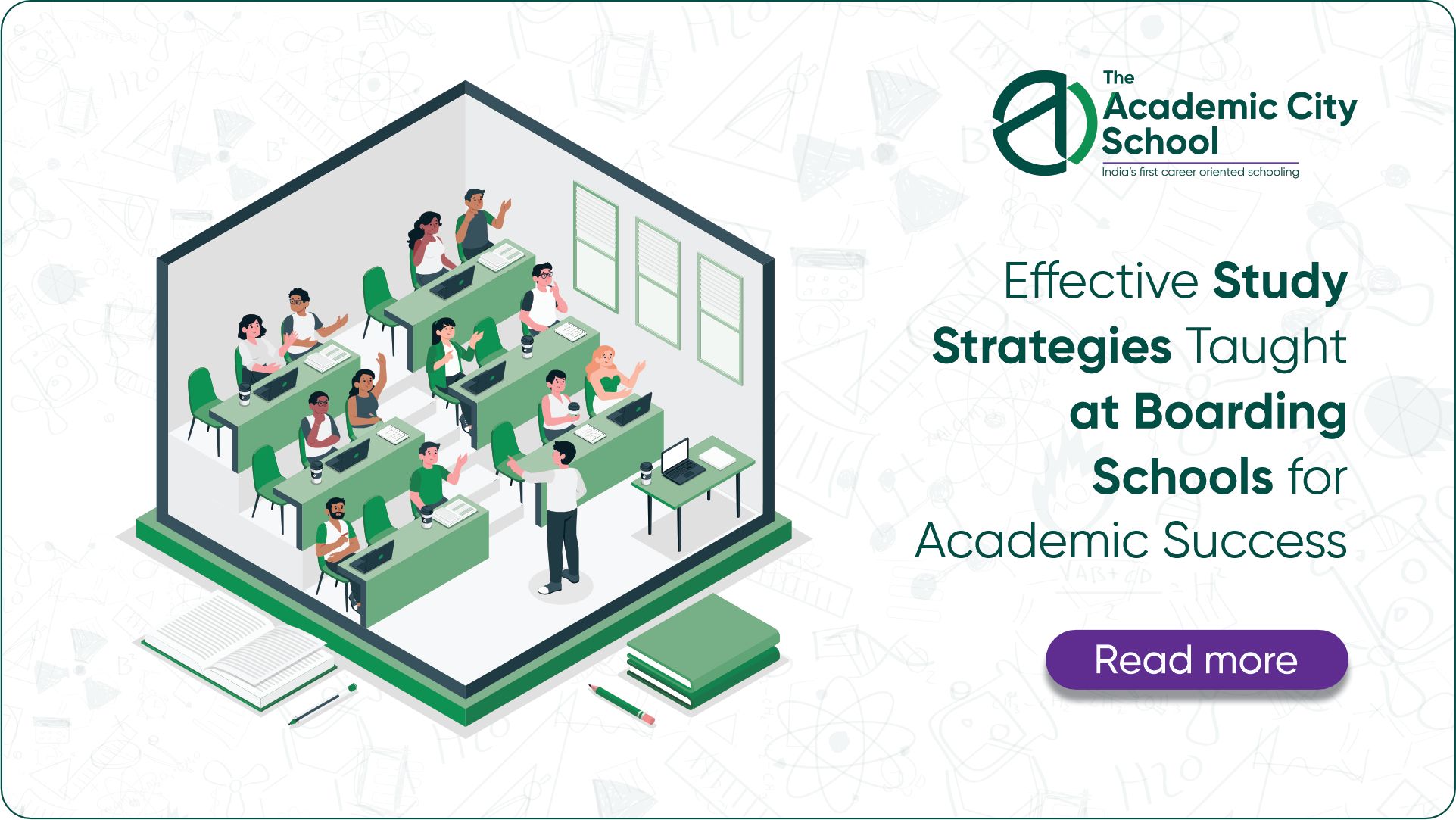The Secret to Academic Success? Strategies Students Actually Use

Unlocking Smarter Learning. How Boarding Schools Equip Students to Excel!
Learning Beyond the Desk
What if every hour your child studied, counted double? That’s the promise of strategy-led learning. Success today is a lot about learning how to learn. Sounds confusing? Let’s decode it…
Boarding schools in India are uniquely placed to teach students how to learn, because all of us understand and agree that rote method (what we saw growing up) may help children memorise facts, but it doesn’t build understanding and that leaves them struggling to apply knowledge in real-life situations.
With structured routines and mentorship, the environment is built for focus which turns studying into a skill that lasts for life.
Why Boarding Schools Have the Edge!
Turning Time into an Ally
In good boarding schools in Bangalore, a child’s day is designed with balance—study hours, meals, sports, and downtime. This rhythm helps students stay on track without the chaos of procrastination.
Harvard’s Center on the Developing Child notes that consistent routines build planning and focus skills, both of which are vital for academic success.
Personal Attention That Matters
In CBSE residential schools, small class sizes mean no child is overlooked. Teachers become mentors. They notice when a child struggles, they encourage the children’s strengths and they help build confidence step by step.
The Power of Peers
Studying in groups is common in boarding schools. They learn best when they discuss in groups and help each other understand concepts. Such learning stays for life. A Stanford study even showed that peer-to-peer teaching improves retention significantly. Parents often say their children return home explaining concepts more clearly than ever—a solid proof of learning that sticks.
Study Strategies That Work
Active Learning, Not Rote
Children are encouraged to create mind maps and practise with quizzes to test their knowledge in real-world contexts. It’s about connecting ideas.
Progress in Small Steps
Success doesn’t come in leaps. Boarding schools teach children to set smaller milestones and celebrate each one. Weekly progress reviews give clarity and reduce last-minute exam panic.
Exam Preparation with Calm
Mock exams and timed practice papers before tests help children walk into exams with confidence.
Looking Ahead: From School to College
Roadmaps for Higher Education
Boarding schools for higher education planning start early. Counselors help children choose subjects wisely and prepare for entrance exams.
Building Transferable Skills
Academic strength is paired with life skills such as research, presentation, communication and problem-solving. These are the qualities that prepare students for careers.
Why Setting Matters
Location and environment shape how children study. Boarding schools in Karnataka often combine calm, green surroundings with modern facilities. In Bangalore, career-focused hostel schools also connect students with tech hubs and industry visits. The result? A child who learns with focus and looks ahead with ambition.
The Academic City School: Where Study Habits Become Life Habits
At The Academic City School, study strategies are practised as a part of everyday life.
- Individual progression plans tailored to each child
- Structured study routines that encourage discipline without stress
- Mentorship that balances academics with emotional care
- Guidance for CBSE success alongside higher education planning
TAC ensures children learn how to work smarter. Parents often remark how their children become confident individuals.
Smarter Learning, Brighter Futures
The difference between average results and lasting success often lies in strategy. Boarding schools in India are helping children master the art of studying.
At The Academic City School, these strategies come alive daily, helping students prepare for life’s bigger tests.
Quick Exam Prep Toolkit For Students
10 Smart Exam Preparation Strategies
- Plan Backwards from Exam Dates – Break subjects into smaller chunks and map them week by week instead of cramming at the last minute.
- Set Daily Study Goals – Focus on mastering one concept or chapter at a time. Specific goals make progress measurable.
- Use Active Recall Over Rote – Test yourself with flashcards, practice questions or by teaching a peer. This boosts retention more than passive reading.
- Spaced Repetition for Memory – Revisit key topics at regular intervals (e.g., after 1 day, 3 days, 1 week) to cement them in long-term memory.
- Practice Past Papers – Solve previous years’ papers or mock tests under timed conditions to build exam stamina and familiarity with formats.
- Create Visual Maps – Diagrams and flowcharts help simplify complex topics and strengthen connections.
- Mix Subjects in a Day – Studying two or three different subjects daily keeps the brain alert and prevents fatigue.
- Stay Physically Active – Short walks, stretching, quick exercises or even meditation improve focus and reduce stress during long study hours.
- Sleep & Nutrition as Study Tools – Adequate rest and balanced meals enhance concentration and memory consolidation.
- Reflect at the End of Each Day – Spend 10 minutes reviewing what worked, what didn’t and what to adjust in the next day’s plan.





